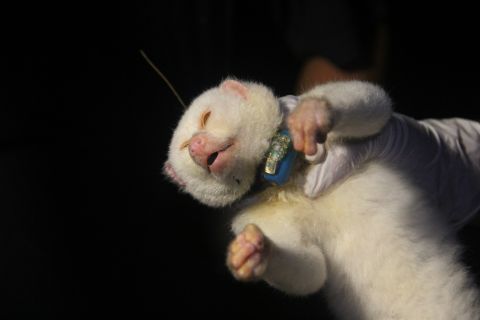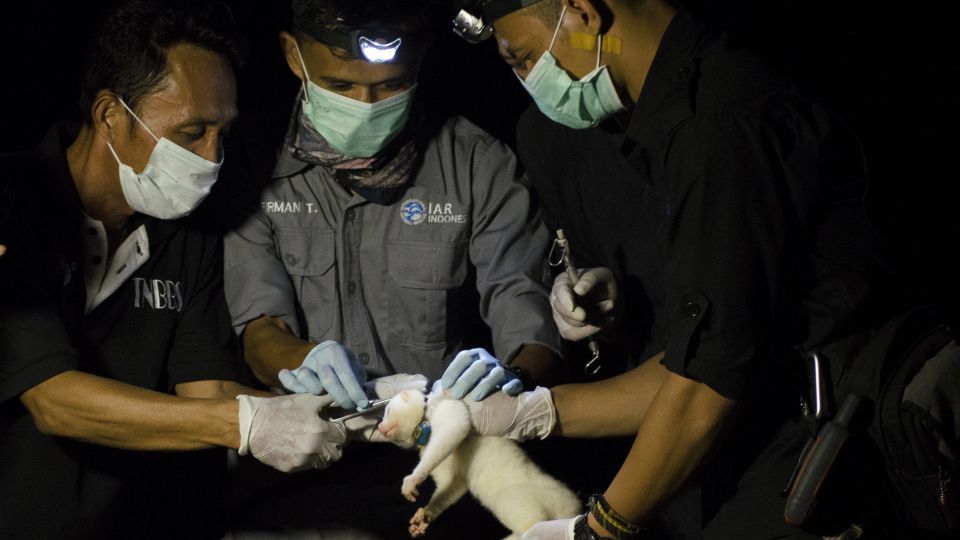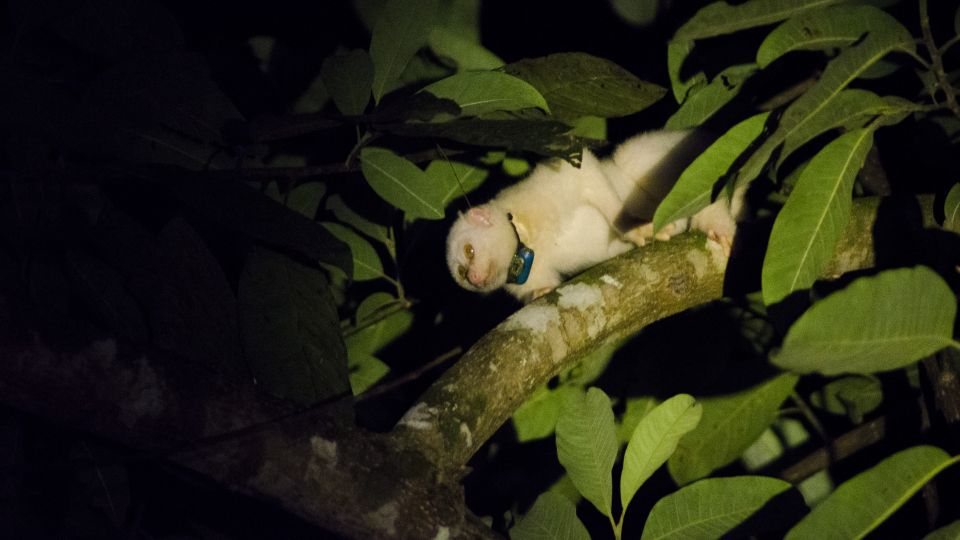
A rare albino slow loris that had been a victim of the illegal online trade in wildlife has been successfully reintroduced into the wild and is thriving back in the forest. The Sumatran slow loris (Nycticebus coucang) was rescued in the nick of time by a team from the Natural Resources Conservation Department (BKSDA) in Bandar Lampung before he could be sold as a pet on Facebook.
The slow loris, named Alby by his rescuers, was confiscated in August 2018 from a man in Kalianda, South Lampung in Sumatra and taken for treatment and rehabilitation to the Animal Rescue Centre (PPS) Region III Bandar Lampung.
In October 2018, after undergoing treatment to restore him to full health, Alby was fitted with a radio-collar and released in the Bukit Barisan Selatan National Park. Our team monitored his movements and behaviour for nearly six months. Then, at the end of February, he was captured one last time so that the collar could be removed, marking the complete success of Alby’s rehabilitation and reintroduction.
“We have cut off Alby’s radio-collar,” confirmed Firman Taufik, a member of our paramedic team, on Wednesday night (27/02).” He is in good condition. He is a satisfactory weight and his body temperature is normal.”

Robithotul Huda, IAR Programme Manager, said that the success of Alby’s reintroduction was great news for conservation efforts and the preservation of slow lorises in their natural habitat. It is also particularly significant because Alby is so rare, perhaps even unique.
“Our monitoring team’s observations show that Alby has demonstrated his ability to survive in his natural habitat. This was proved by his natural wild behaviour. After his release he was very active and agile. We are confident that he needs no further monitoring and is ready to be free of any further human supervision or intervention,” said Huda.
Huda added that cutting off the radio-collar brought an end to the monitoring of Alby which began when he was released in October 2018. It had been a lengthy and intensive process. For nearly six months our monitoring team in the field had observed Alby’s behaviour every night, assisted by a radio receiver which picked up signals from Alby’s collar, enabling the team to keep track of him.
“The team observed and noted down the behavioural development and movement of this rare nocturnal primate. Not only did he demonstrate normal loris behaviour and prove that he was adept at finding food and seeking shelter in the trees during the daytime, he was also seen socialising with wild slow lorises which was very encouraging,” he explained.
“As an albino slow loris, Alby is extremely rare and possibly unique but he still deserves the chance to live freely in its natural habitat,” he added.

As well as being excellent news for Alby, the success of his reintroduction is an indicator of the success of the reintroduction programme of Sumatran slow lorises in the forest area of Bukit Barisan National Park.
According to Huda, based on the surveys and habitat assessments which IAR’s team has done, the National Park, which is a World Heritage Site, is also an ideal conservation area for the release of protected slow lorises.
“Since 2017, including Alby, 32 Sumatran slow lorises that had been victims of the illegal trade in wildlife as pets have been returned to their natural habitat,” Huda added.
He expressed the hope that in future more research can be done because until now there has been very little in-depth research into slow lorises – particularly regarding the existence of wild albino slow lorises. “There are many aspects of slow loris populations that require scientific study, from their ecology, biology and social behaviour to the survival rates of slow lorises in the wild,” he explained.
The reintroduction of lorises into the wild also brings other benefits because this extraordinary species also carries out certain ecological functions, such as acting as a natural pest controller and pollinator.

